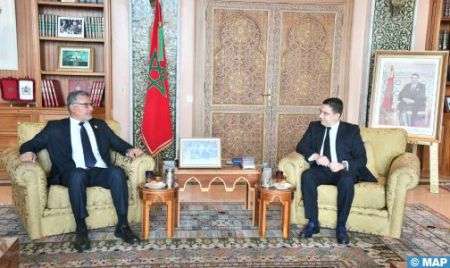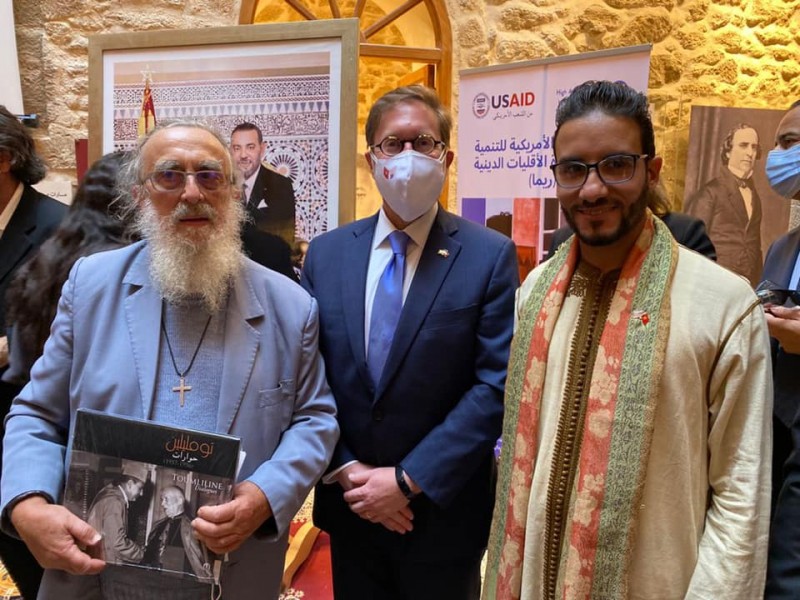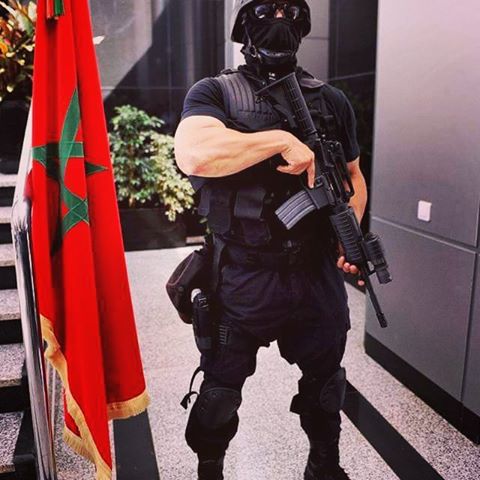President of the Libyan High Council of State, Muhammad Meftah Takala, welcomed Morocco’s position, under the leadership of King Mohammed VI, regarding the Libyan crisis.
Inter-Libyan dialogue rounds held in the Kingdom “have laid the foundations of some institutions and put an end to the bloody conflict between the Libyan brothers”, Takala said at a joint press conference with Minister of Affairs Foreign Affairs Nasser Bourita, following their talks Thursday in Rabat.
Takala, on a working visit to Morocco, underlined that the Libyan High Council of State is confident in “the capacity of the Kingdom of Morocco to advance the political process in Libya.”
The Kingdom’s balanced position vis-à-vis the various political partners in Libya “completely reassures us about the possibility of achieving positive results during the negotiations held in Morocco,” he noted.
The 2015 Skhirat agreement is a constitutional document, Takala pointed out, adding that the two dialogue rounds held in Bouznika contributed to building the country’s institutions of sovereignty.
In this regard, he said that the 6+6 Joint Committee, made up of the Libyan House of Representatives and the Libyan High Council of State, is tangible proof of the consensus between the Libyan partners to reach electoral laws accepted by all.
Echoing Muhammad Meftah Takala, who is paying an official working visit to the Kingdom at the head of a delegation from the High Council of State, Nasser Bourita insisted that holding presidential and legislative elections is a key process to meet the aspirations of the Libyan people.
Based on its continued positions regarding the situation in Libya as defined by King Mohammed VI, Morocco considers that Libya can move towards a political process leading to elections, given the current international and regional context, Bourita underlined at the joint press conference
Bourita urged Libyan institutions and protagonists to seize the existing opportunity to find a solution and insisted that that the settlement of the crisis in Libya is between the hands of the Libyans.
Bourita underlined the kingdom’s balanced relations with all parties and its constant position to promote inter-Libyan dialogue, as was the case during the inter-Libyan talks held in Skhirat, Bouznika, and Tangier.
In all its initiatives, Morocco always keeps in mind that “the success of the political process depends largely on its progress under the aegis of the United Nations, to guarantee respect for international legality,” he said.
Bourita also emphasized that all the kingdom’s initiatives in favor of the Libyans stem from its conviction that the future of the region is linked to the stability of Libya and its return as an acting player in its Maghreb, Arab and African environments



